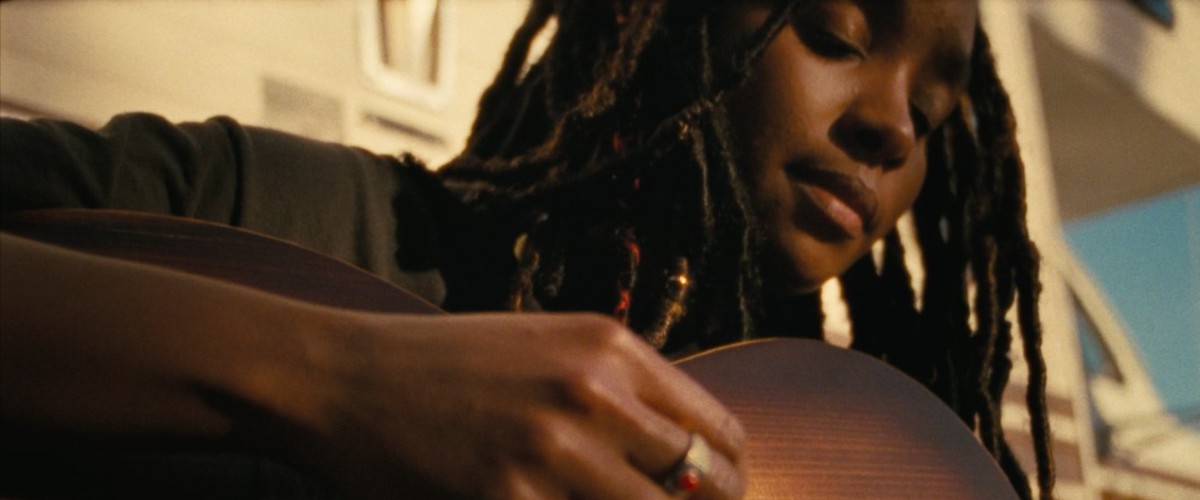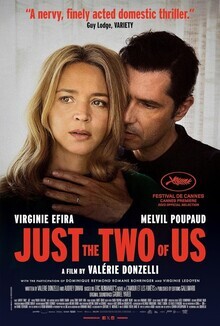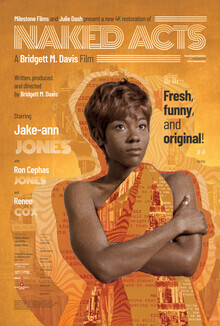
Now streaming on:
Writer-director Nicole Riegel’s “Dandelion” takes place over a mere number of days, but emotionally, inserts us so deeply into its lead’s mind that it feels like we’ve traversed an entire consciousness. Dandelion (Kiki Layne) is unfulfilled. She’s an aspiring musician from Cincinnati who plays a regular gig in a hotel bar filled with inattentive and chatty patrons. The heart and soul she pours into her songs is drowned out by girls' nights and the allure of a phone screen. And further, when she heads home to care for her sick mother, she’s met with attitude-riddled conversations, spats, and sentiments shaming the idea of being “a 40-year-old troubadour.”
After the hotel’s bartender slides her a flyer for a South Dakota biker rally/music festival, Dandelion takes the leap. There, she meets Scottish musician Casey (Thomas Doherty), a quiet, brooding type, who introduces her to his group of friends. Now working “in sales” (infamously every creative person’s dreaded title), Casey feels that his best musical days are behind him and has given up on his ambition. As Dandelion warms up to the crew, she and Casey begin a slow burn, passionate romance fueled as much by music as their attraction to each other. So follows an expedition of idyllic hikes into the mountains, soulful duets, and finally for Dandelion, the feeling of genuinely living her music.
Riegel’s film lands most of its impact outside of traditional dialogue. Casey and Dandelion’s conversations happen within the music they make, both separately and together. In one particular fireside scene, the duo argues whilst writing a song together, and the volume Dandelion sings at, rising exponentially, is the emotional equivalent of shouting. Equally, moments of love are shown in admiring shots, extreme close-ups of the two in performance: fingers strumming guitars, strained throats belting vocals, and blissful eyes fluttering, overcome with the emotion of the song.
It’s clear that Casey and Dandelion envy each other at different points in their musical journeys. Casey longs to be back where Dandelion currently is, a blank landscape of pure opportunity. Yet in Casey, Dandelion sees musical community and a shred of recognition, something she’s been tirelessly searching for.
Layne is as vulnerable and moving as ever, and Doherty carries an air of passion and trouble that make Casey’s magnetism absolutely apparent. While “Dandelion” excellently spotlights the interiority of its characters, making plot consequential rather than primary, it often loses sight of its lead. At times Dandelion feels sidelined in her own story.
Whether through asides with Casey or the film’s sprint to its conclusion, the care and time taken to familiarize us with Dandelion in the film’s first two acts feels paused for lesser intentions. Yet even with a shaky conclusion, the swarming warmth of Riegel’s direction and the meditation of her writing results in a film that displays the fleeting, volatile kind of love that forces you to grow - the kind the greatest songs are written about.
Peyton Robinson is a freelance film writer based in Chicago, IL.







113 minutes